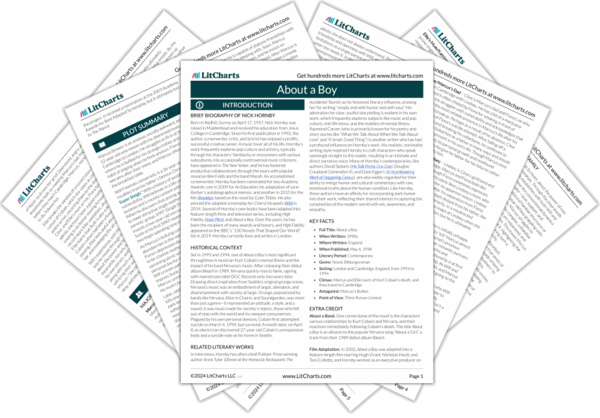Will’s reflection on his ex-girlfriend and their failed relationship characterizes him as commitment-phobic. John and Christine’s request for Will to be their daughter’s godfather is jarring for him because it challenges his own self-perception as cool, unattached, and aloof, and he wonders what “hidden depths” they could possibly see in him. This brief moment in the beginning of the story foreshadows the journey Will’s character will inevitably take.
